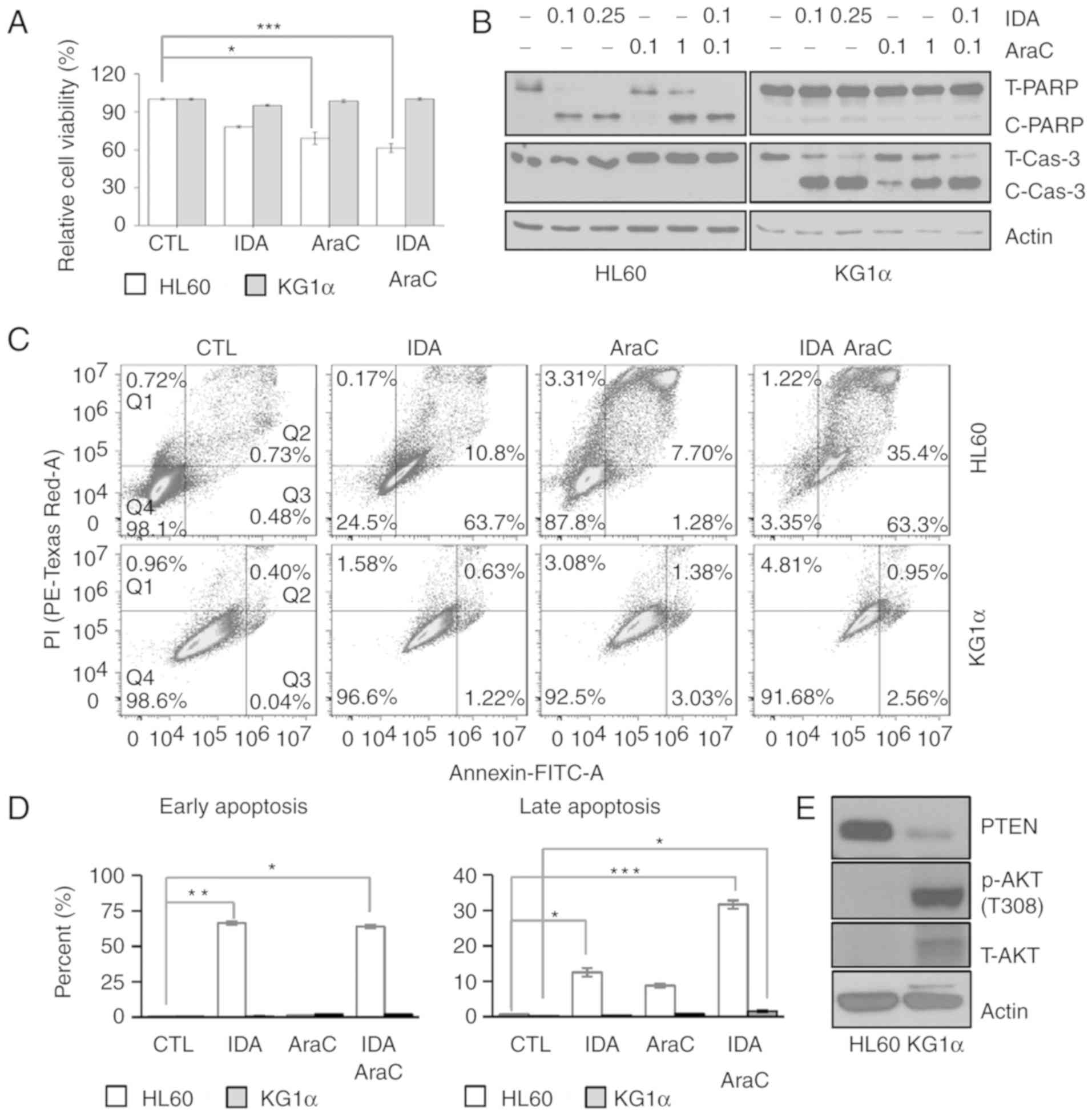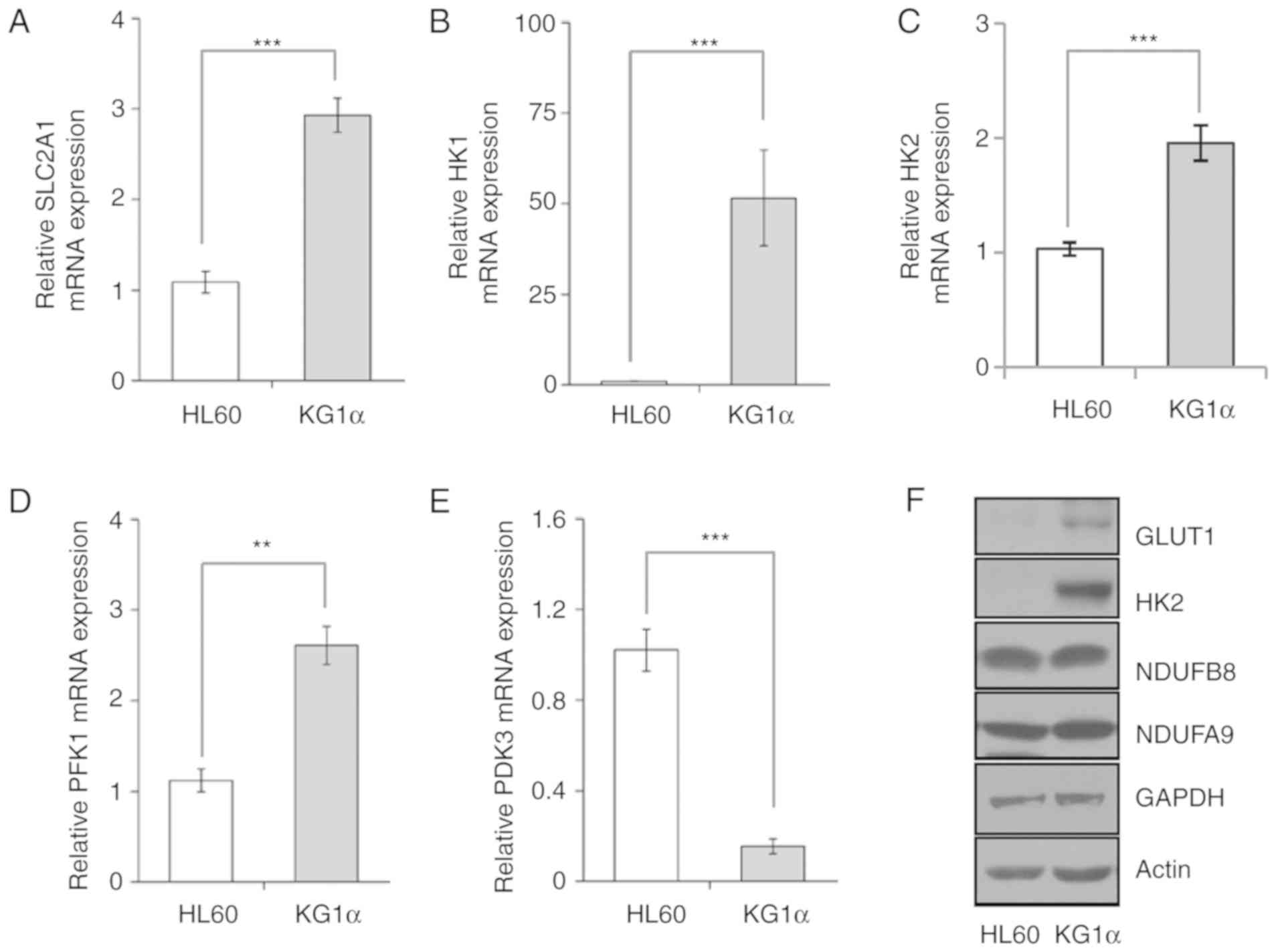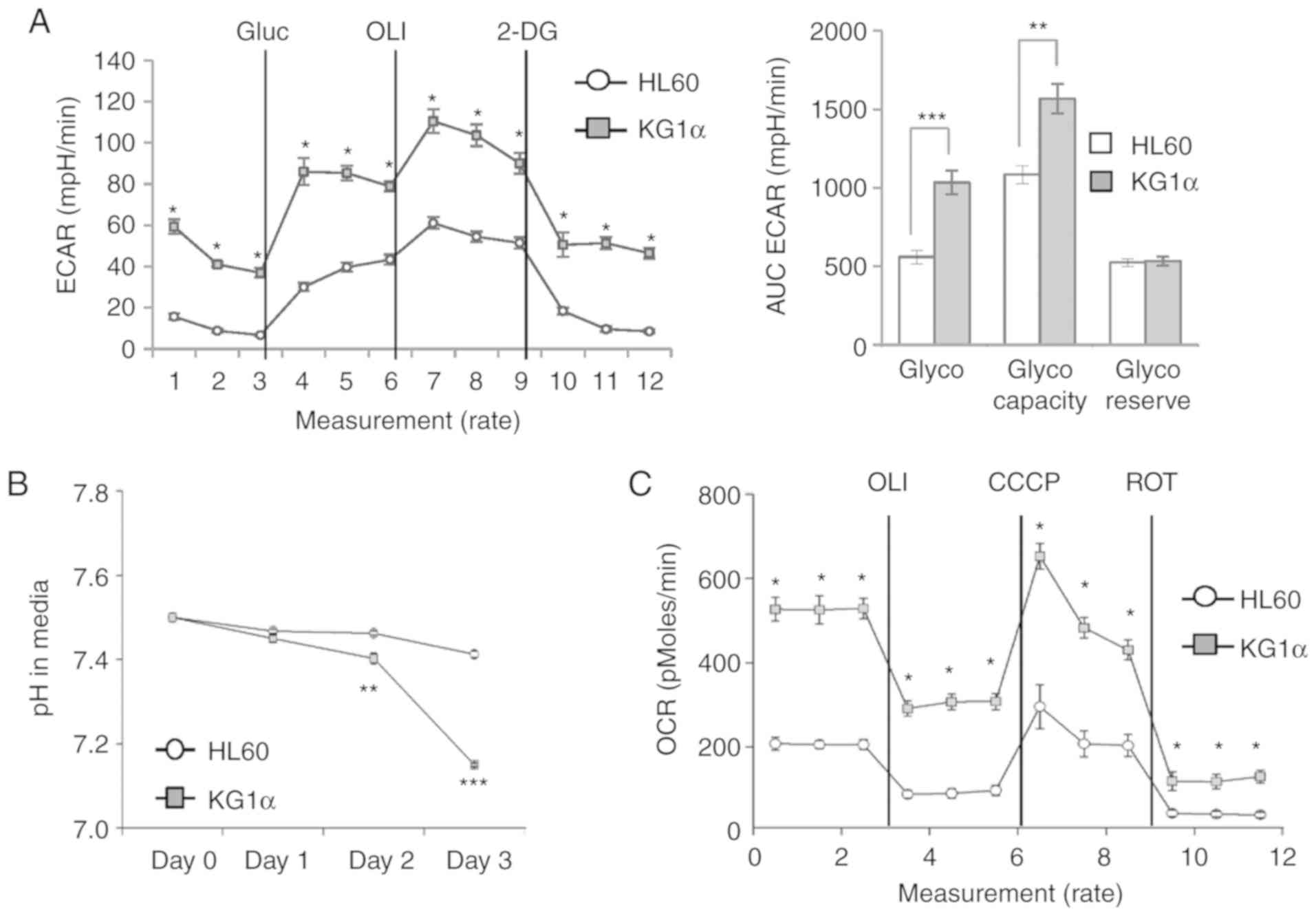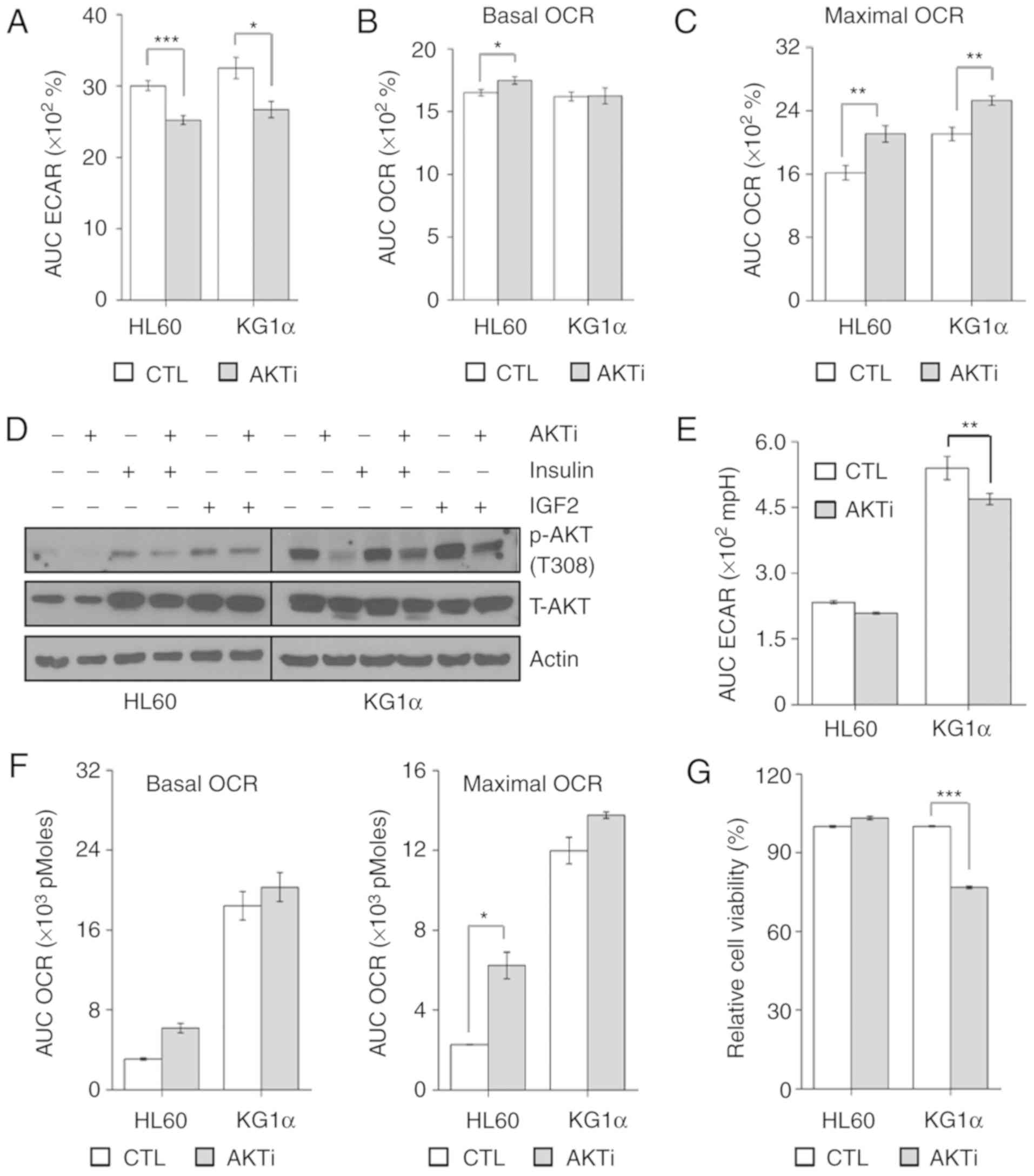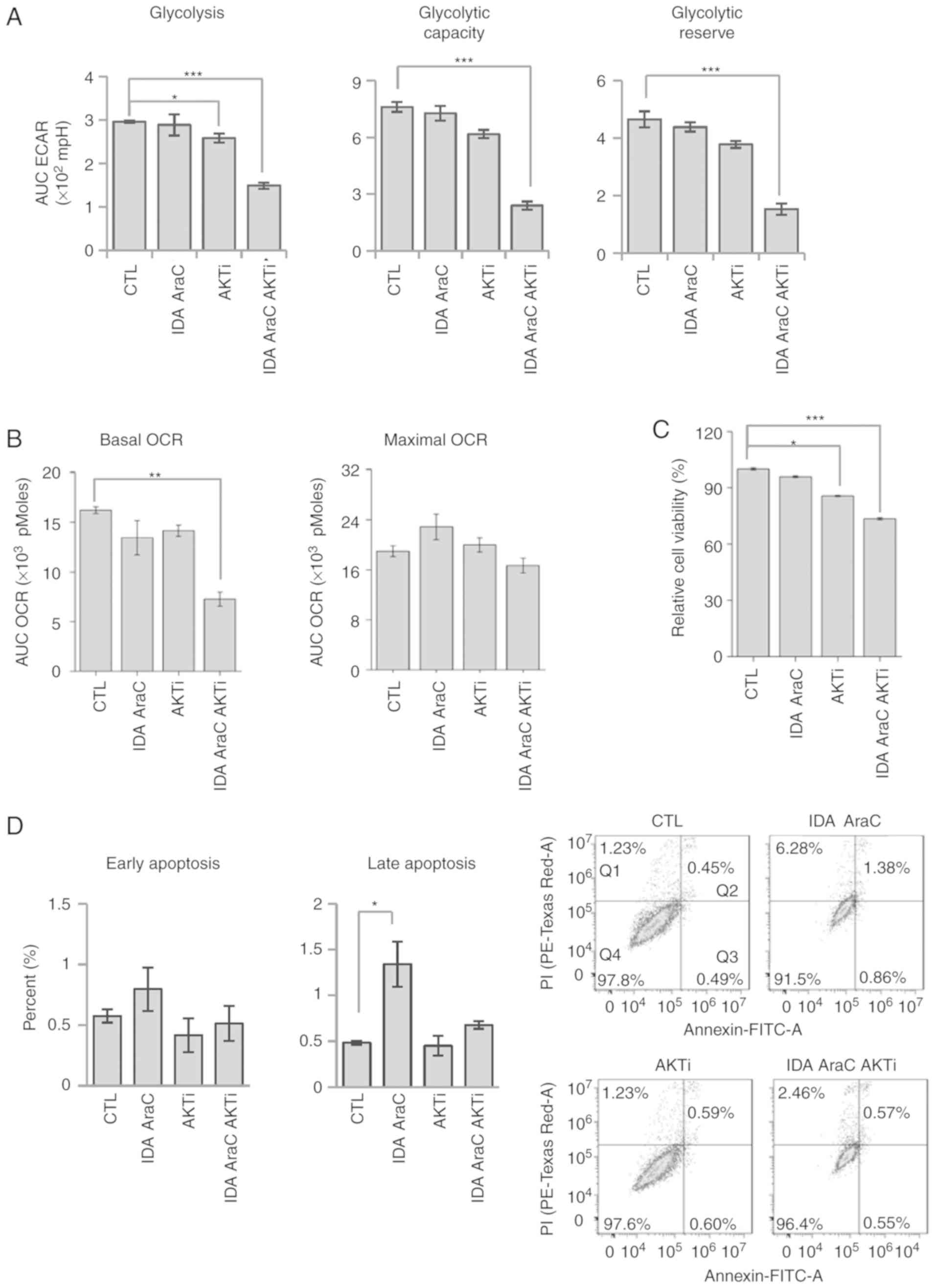|
1
|
Döhner H, Weisdorf DJ and Bloomfield CD:
Acute Myeloid Leukemia. N Engl J Med. 373:1136–1152. 2015.
View Article : Google Scholar : PubMed/NCBI
|
|
2
|
Gale RP: Advances in the treatment of
acute myelogenous leukemia. N Engl J Med. 300:1189–1199. 1979.
View Article : Google Scholar : PubMed/NCBI
|
|
3
|
Sakashita A, Hattori T, Miller CW,
Suzushima H, Asou N, Takatsuki K and Koeffler HP: Mutations of the
p53 gene in adult T-cell leukemia. Blood. 79:477–480.
1992.PubMed/NCBI
|
|
4
|
Kimby E, Nygren P and Glimelius B;
SBU-group: Swedish Council of Technology Assessment in Health Care:
A systematic overview of chemotherapy effects in acute myeloid
leukaemia. Acta Oncol. 40:231–252. 2001. View Article : Google Scholar : PubMed/NCBI
|
|
5
|
Mohammadi M, Cao Y, Glimelius I, Bottai M,
Eloranta S and Smedby KE: The impact of comorbid disease history on
all-cause and cancer-specific mortality in myeloid leukemia and
myeloma-a Swedish population-based study. BMC Cancer. 15:8502015.
View Article : Google Scholar : PubMed/NCBI
|
|
6
|
De Kouchkovsky I and Abdul-Hay M: Acute
myeloid leukemia: a comprehensive review and 2016 update'. Blood
Cancer J. 6:e4412016. View Article : Google Scholar : PubMed/NCBI
|
|
7
|
Stone RM, Moser B, Sanford B, Schulman P,
Kolitz JE, Allen S, Stock W, Galinsky I, Vij R, Marcucci G, Hurd D,
et al: High dose cytarabine plus gemtuzumab ozogamicin for patients
with relapsed or refractory acute myeloid leukemia: Cancer and
leukemia Group B study 19902. Leuk Res. 35:329–333. 2011.
View Article : Google Scholar : PubMed/NCBI
|
|
8
|
Aziz H, Ping CY, Alias H, Ab Mutalib NS
and Jamal R: Gene mutations as emerging biomarkers and therapeutic
targets for relapsed acute myeloid leukemia. Frontiers in
Pharmacology. 8:8972017. View Article : Google Scholar : PubMed/NCBI
|
|
9
|
Levis M: Midostaurin approved for
FLT3-mutated AML. Blood. 129:3403–3406. 2017. View Article : Google Scholar : PubMed/NCBI
|
|
10
|
Stein EM, DiNardo CD, Pollyea DA, Fathi
AT, Roboz GJ, Altman JK, Stone RM, DeAngelo DJ, Levine RL, Flinn
IW, et al: Enasidenib in mutant IDH2 relapsed or refractory
acute myeloid leukemia. Blood. 130:722–731. 2017. View Article : Google Scholar : PubMed/NCBI
|
|
11
|
Lagadinou ED, Sach A, Callahan K, Rossi
RM, Neering SJ, Minhajuddin M, Ashton JM, Pei S, Grose V, O'Dwyer
KM, et al: BCL-2 inhibition targets oxidative phosphorylation and
selectively eradicates quiescent human leukemia stem cells. Cell
Stem Cell. 12:329–341. 2013. View Article : Google Scholar : PubMed/NCBI
|
|
12
|
Škrtić M, Sriskanthadevan S, Jhas B,
Gebbia M, Wang X, Wang Z, Hurren R, Jitkova Y, Gronda M, Maclean N,
et al: Inhibition of mitochondrial translation as a therapeutic
strategy for human acute myeloid leukemia. Cancer Cell. 20:674–688.
2011. View Article : Google Scholar : PubMed/NCBI
|
|
13
|
Kuntz EM, Baquero P, Michie AM, Dunn K,
Tardito S, Holyoake TL, Helgason GV and Gottlieb E: Targeting
mitochondrial oxidative phosphorylation eradicates
therapy-resistant chronic myeloid leukemia stem cells. Nat Med.
23:1234–1240. 2017. View
Article : Google Scholar : PubMed/NCBI
|
|
14
|
Manning BD and Toker A: AKT/PKB Signaling:
Navigating the network. Cell. 169:381–405. 2017. View Article : Google Scholar : PubMed/NCBI
|
|
15
|
Hawkins PT and Stephens LR: PI3K
signalling in inflammation. Biochim Biophys Acta. 1851:882–897.
2015. View Article : Google Scholar : PubMed/NCBI
|
|
16
|
Zhao HF, Wang J and Tony To SS: The
phosphatidylinositol 3-kinase/Akt and c-Jun N-terminal kinase
signaling in cancer: Alliance or contradiction? (Review). Int J
Oncol. 47:429–436. 2015. View Article : Google Scholar : PubMed/NCBI
|
|
17
|
Kang YH, Lee HS and Kim WH: Promoter
methylation and silencing of PTEN in gastric carcinoma. Lab Invest.
82:285–291. 2002. View Article : Google Scholar : PubMed/NCBI
|
|
18
|
García JM, Silva J, Peña C, Garcia V,
Rodríguez R, Cruz MA, Cantos B, Provencio M, España P and Bonilla
F: Promoter methylation of the PTEN gene is a common molecular
change in breast cancer. Genes Chromosomes Cancer. 41:117–124.
2004. View Article : Google Scholar : PubMed/NCBI
|
|
19
|
Alvarez-Nunez F, Bussaglia E, Mauricio D,
Ybarra J, Vilar M, Lerma E, de Leiva A and Matias-Guiu X; Thyroid
Neoplasia Study Group, : PTEN promoter methylation in sporadic
thyroid carcinomas. Thyroid. 16:17–23. 2006. View Article : Google Scholar : PubMed/NCBI
|
|
20
|
Liu TC, Lin PM, Chang JG, Lee JP, Chen TP
and Lin SF: Mutation analysis of PTEN/MMAC1 in acute myeloid
leukemia. Am J Hematol. 63:170–175. 2000. View Article : Google Scholar : PubMed/NCBI
|
|
21
|
Huang X, Li D, Li T, Zhao BO and Chen X:
Prognostic value of the expression of phosphatase and tensin
homolog and CD44 in elderly patients with refractory acute myeloid
leukemia. Oncol Lett. 10:103–110. 2015. View Article : Google Scholar : PubMed/NCBI
|
|
22
|
Yilmaz OH, Valdez R, Theisen BK, Guo W,
Ferguson DO, Wu H and Morrison SJ: Pten dependence distinguishes
haematopoietic stem cells from leukaemia-initiating cells. Nature.
441:475–482. 2006. View Article : Google Scholar : PubMed/NCBI
|
|
23
|
Zhang J, Grindley JC, Yin T, Jayasinghe S,
He XC, Ross JT, Haug JS, Rupp D, Porter-Westpfahl KS, Wiedemann LM,
et al: PTEN maintains haematopoietic stem cells and acts in lineage
choice and leukaemia prevention. Nature. 441:518–522. 2006.
View Article : Google Scholar : PubMed/NCBI
|
|
24
|
Fragoso R and Barata JT: PTEN and leukemia
stem cells. Adv Biol Regul. 56:22–29. 2014. View Article : Google Scholar : PubMed/NCBI
|
|
25
|
Wang L, Xiong H, Wu F, Zhang Y, Wang J,
Zhao L, Guo X, Chang LJ, Zhang Y, You MJ, et al: Hexokinase
2-mediated Warburg effect is required for PTEN- and
p53-deficiency-driven prostate cancer growth. Cell Rep.
8:1461–1474. 2014. View Article : Google Scholar : PubMed/NCBI
|
|
26
|
Li Y, He L, Zeng N, Sahu D, Cadenas E,
Shearn C, Li W and Stiles BL: Phosphatase and tensin homolog
deleted on chromosome 10 (PTEN) signaling regulates mitochondrial
biogenesis and respiration via estrogen-related receptor α (ERRα).
J Biol Chem. 288:25007–25024. 2013. View Article : Google Scholar : PubMed/NCBI
|
|
27
|
Pietkiewicz S, Schmidt JH and Lavrik IN:
Quantification of apoptosis and necroptosis at the single cell
level by a combination of Imaging Flow Cytometry with classical
Annexin V/propidium iodide staining. J Immunol Methods. 423:99–103.
2015. View Article : Google Scholar : PubMed/NCBI
|
|
28
|
She M, Niu X, Chen X, Li J, Zhou M, He Y,
Le Y and Guo K: Resistance of leukemic stem-like cells in AML cell
line KG1a to natural killer cell-mediated cytotoxicity. Cancer
Lett. 318:173–179. 2012. View Article : Google Scholar : PubMed/NCBI
|
|
29
|
Wiernik PH, Banks PL, Case DC Jr, Arlin
ZA, Periman PO, Todd MB, Ritch PS, Enck RE and Weitberg AB:
Cytarabine plus idarubicin or daunorubicin as induction and
consolidation therapy for previously untreated adult patients with
acute myeloid-leukemia. Blood. 79:313–319. 1992.PubMed/NCBI
|
|
30
|
Gallay N, Dos Santos C, Cuzin L, Bousquet
M, Simmonet Gouy V, Chaussade C, Attal M, Payrastre B, Demur C and
Récher C: The level of AKT phosphorylation on threonine 308 but not
on serine 473 is associated with high-risk cytogenetics and
predicts poor overall survival in acute myeloid leukaemia.
Leukemia. 23:1029–1038. 2009. View Article : Google Scholar : PubMed/NCBI
|
|
31
|
Elstrom RL, Bauer DE, Buzzai M, Karnauskas
R, Harris MH, Plas DR, Zhuang H, Cinalli RM, Alavi A, Rudin CM and
Thompson CB: Akt stimulates aerobic glycolysis in cancer cells.
Cancer Res. 64:3892–3899. 2004. View Article : Google Scholar : PubMed/NCBI
|
|
32
|
Barthel A, Okino ST, Liao J, Nakatani K,
Li J, Whitlock JP Jr and Roth RA: Regulation of GLUT1 gene
transcription by the serine/threonine kinase Akt1. J Biol Chem.
274:20281–20286. 1999. View Article : Google Scholar : PubMed/NCBI
|
|
33
|
Xu DD, Wang Y, Zhou PJ, Qin SR, Zhang R,
Zhang Y, Xue X, Wang J, Wang X, Chen HC, et al: The
IGF2/IGF1R/nanog signaling pathway regulates the proliferation of
acute myeloid leukemia stem cells. Front Pharmacol. 9:6872018.
View Article : Google Scholar : PubMed/NCBI
|
|
34
|
Matkovic K, Brugnoli F, Bertagnolo V,
Banfic H and Visnjic D: The role of the nuclear Akt activation and
Akt inhibitors in all-trans-retinoic acid-differentiated HL-60
cells. Leukemia. 20:941–951. 2006. View Article : Google Scholar : PubMed/NCBI
|
|
35
|
Thol F, Schlenk RF, Heuser M and Ganser A:
How I treat refractory and early relapsed acute myeloid leukemia.
Blood. 126:319–327. 2015. View Article : Google Scholar : PubMed/NCBI
|
|
36
|
Bose P, Vachhani P and Cortes JE:
Treatment of relapsed/refractory acute myeloid leukemia. Curr Treat
Options Oncol. 18:172017. View Article : Google Scholar : PubMed/NCBI
|
|
37
|
Zhou Y, Tozzi F, Chen J, Fan F, Xia L,
Wang J, Gao G, Zhang A, Xia X, Brasher H, et al: Intracellular ATP
levels are a pivotal determinant of chemoresistance in colon cancer
cells. Cancer Res. 72:304–314. 2012. View Article : Google Scholar : PubMed/NCBI
|
|
38
|
Song K, Li M, Xu X, Xuan LI, Huang G and
Liu Q: Resistance to chemotherapy is associated with altered
glucose metabolism in acute myeloid leukemia. Oncol Lett.
12:334–342. 2016. View Article : Google Scholar : PubMed/NCBI
|
|
39
|
Tanioka M, Sakai K, Sudo T, Sakuma T,
Kajimoto K, Hirokaga K, Takao S, Negoro S, Minami H, Nakagawa K and
Nishio K: Transcriptional CCND1 expression as a predictor of poor
response to neoadjuvant chemotherapy with trastuzumab in
HER2-positive/ER-positive breast cancer. Breast Cancer Res Treat.
147:513–525. 2014. View Article : Google Scholar : PubMed/NCBI
|
|
40
|
Jordan CT: The leukemic stem cell. Best
Pract Res Clin Haematol. 20:13–18. 2007. View Article : Google Scholar : PubMed/NCBI
|
|
41
|
Vander Heiden MG, Cantley LC and Thompson
CB: Understanding the Warburg effect: The metabolic requirements of
cell proliferation. Science. 324:1029–1033. 2009. View Article : Google Scholar : PubMed/NCBI
|
|
42
|
Warburg O: On the origin of cancer cells.
Science. 123:309–314. 1956. View Article : Google Scholar : PubMed/NCBI
|
|
43
|
Weinhouse S: On respiratory impairment in
cancer cells. Science. 124:267–269. 1956. View Article : Google Scholar : PubMed/NCBI
|
|
44
|
Zu XL and Guppy M: Cancer metabolism:
Facts, fantasy, and fiction. Biochem Biophys Res Commun.
313:459–465. 2004. View Article : Google Scholar : PubMed/NCBI
|
|
45
|
Li X, Jiang Y, Meisenhelder J, Yang W,
Hawke DH, Zheng Y, Xia Y, Aldape K, He J, Hunter T, et al:
Mitochondria-translocated PGK1 functions as a protein kinase to
coordinate Glycolysis and the TCA Cycle in tumorigenesis. Mol Cell.
61:705–719. 2016. View Article : Google Scholar : PubMed/NCBI
|
|
46
|
Mates JM, Segura JA, Campos-Sandoval JA,
Lobo C, Alonso L, Alonso FJ and Márquez J: Glutamine homeostasis
and mitochondrial dynamics. Int J Biochem Cell Biol. 41:2051–2061.
2009. View Article : Google Scholar : PubMed/NCBI
|
|
47
|
Meng M, Chen S, Lao T, Liang D and Sang N:
Nitrogen anabolism underlies the importance of glutaminolysis in
proliferating cells. Cell Cycle. 9:3921–3932. 2010. View Article : Google Scholar : PubMed/NCBI
|
|
48
|
Fan J, Kamphorst JJ, Mathew R, Chung MK,
White E, Shlomi T and Rabinowitz JD: Glutamine-driven oxidative
phosphorylation is a major ATP source in transformed mammalian
cells in both normoxia and hypoxia. Mol Syst Biol. 9:7122013.
View Article : Google Scholar : PubMed/NCBI
|
|
49
|
Farge T, Saland E, de Toni F, Aroua N,
Hosseini M, Perry R, Bosc C, Sugita M, Stuani L, Fraisse M,
Scotland S, et al: Chemotherapy-resistant human acute myeloid
leukemia cells are not enriched for leukemic stem cells but require
oxidative metabolism. Cancer Discov. 7:716–735. 2017. View Article : Google Scholar : PubMed/NCBI
|
|
50
|
Gojo I, Perl A, Luger S, Baer MR,
Norsworthy KJ, Bauer KS, Tidwell M, Fleckinger S, Carroll M and
Sausville EA: Phase I study of UCN-01 and perifosine in patients
with relapsed and refractory acute leukemias and high-risk
myelodysplastic syndrome. Invest New Drugs. 31:1217–1227. 2013.
View Article : Google Scholar : PubMed/NCBI
|
|
51
|
Sampath D, Malik A, Plunkett W, Nowak B,
Williams B, Burton M, Verstovsek S, Faderl S, Garcia-Manero G, List
AF, et al: Phase I clinical, pharmacokinetic, and pharmacodynamic
study of the Akt-inhibitor triciribine phosphate monohydrate in
patients with advanced hematologic malignancies. Leuk Res.
37:1461–1467. 2013. View Article : Google Scholar : PubMed/NCBI
|















